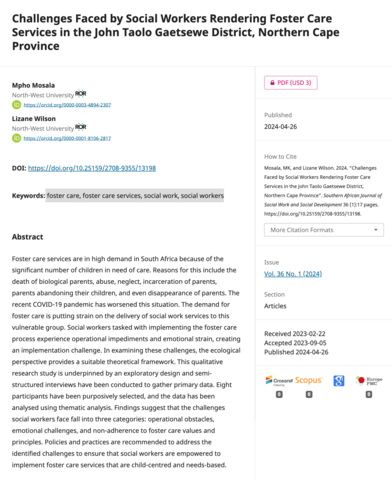Foster care services are in high demand in South Africa because of the significant number of children in need of care. Reasons for this include the death of biological parents, abuse, neglect, incarceration of parents, parents abandoning their children, and even disappearance of parents.
The recent COVID-19 pandemic has worsened this situation. The demand for foster care is putting strain on the delivery of social work services to this vulnerable group. Social workers tasked with implementing the foster care process experience operational impediments and emotional strain, creating an implementation challenge. In examining these challenges, the ecological perspective provides a suitable theoretical framework.
This qualitative research study is underpinned by an exploratory design and semi-structured interviews have been conducted to gather primary data. Eight participants have been purposively selected, and the data has been analysed using thematic analysis. Findings suggest that the challenges social workers face fall into three categories: operational obstacles, emotional challenges, and non-adherence to foster care values and principles.
Policies and practices are recommended to address the identified challenges to ensure that social workers are empowered to implement foster care services that are child-centred and needs-based.

